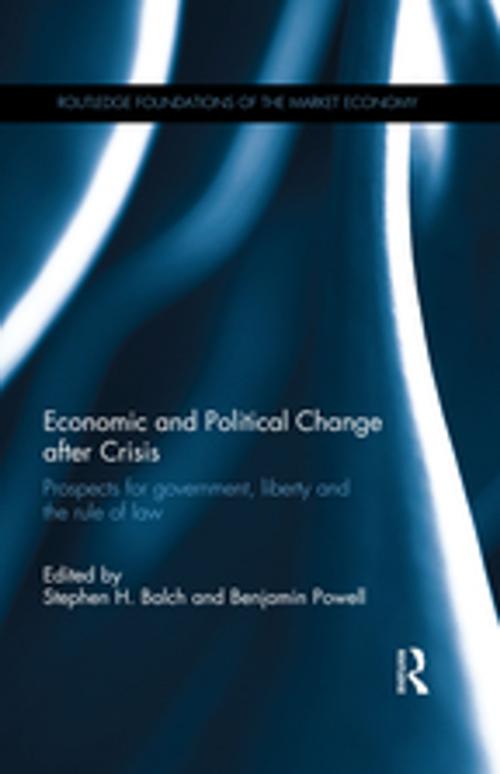Economic and Political Change after Crisis
Prospects for government, liberty and the rule of law
Business & Finance, Economics, Economic Conditions| Author: | ISBN: | 9781315505671 | |
| Publisher: | Taylor and Francis | Publication: | October 4, 2016 |
| Imprint: | Routledge | Language: | English |
| Author: | |
| ISBN: | 9781315505671 |
| Publisher: | Taylor and Francis |
| Publication: | October 4, 2016 |
| Imprint: | Routledge |
| Language: | English |
The U.S. Government’s accumulated national debt and unfunded liabilities in social security and Medicare could be pushing the country towards a fiscal crisis. How could such a crisis be avoided? If a crisis does strike, how might it be dealt with? What might be the long term ramifications of experiencing a crisis? The contributors to Economic and Political Change After Crisis explore all of these questions and more.
The book begins by exploring how past crises have permanently increased the size and scope of government and how well the rule of law has been maintained during these crises. Chapters explore how these relationships might change in a future crisis and examine how the structure of the U.S. government contributes to a tendency towards fiscal imbalance. In a provocative contribution, the authors predict a U.S. government default on its debt. The book concludes by considering how a fiscal crisis might precipitate or interact with other forms of crises.
Social scientists from a variety of disciplines, public policy makers, and concerned members of the general public would all benefit from the contributions contained in this book. If the U.S. is going to avoid a future crisis, or do as well as possible if a crisis occurs, the arguments in these chapters should be given serious consideration.
The U.S. Government’s accumulated national debt and unfunded liabilities in social security and Medicare could be pushing the country towards a fiscal crisis. How could such a crisis be avoided? If a crisis does strike, how might it be dealt with? What might be the long term ramifications of experiencing a crisis? The contributors to Economic and Political Change After Crisis explore all of these questions and more.
The book begins by exploring how past crises have permanently increased the size and scope of government and how well the rule of law has been maintained during these crises. Chapters explore how these relationships might change in a future crisis and examine how the structure of the U.S. government contributes to a tendency towards fiscal imbalance. In a provocative contribution, the authors predict a U.S. government default on its debt. The book concludes by considering how a fiscal crisis might precipitate or interact with other forms of crises.
Social scientists from a variety of disciplines, public policy makers, and concerned members of the general public would all benefit from the contributions contained in this book. If the U.S. is going to avoid a future crisis, or do as well as possible if a crisis occurs, the arguments in these chapters should be given serious consideration.















